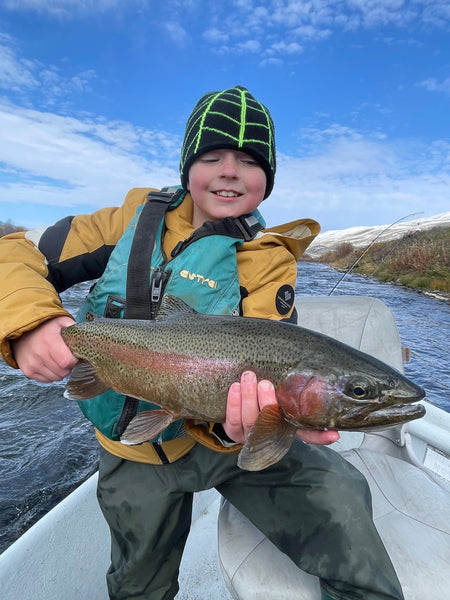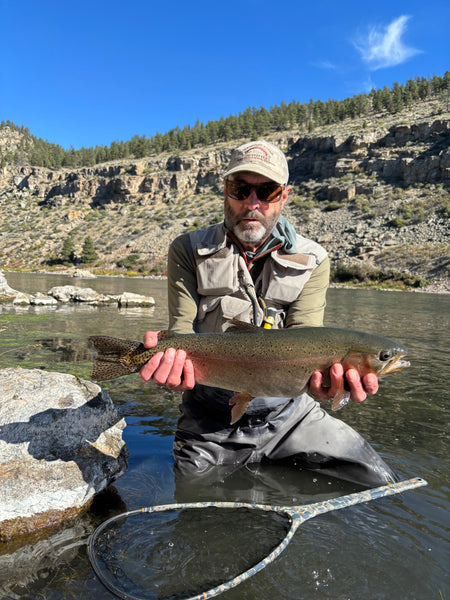Spring Gear Cleaning Checklist
It’s that time of year again. The snow is melting or has melted where you fish. We’re all itching to hit the river fly fishing. But to avoid any disappointments it's best to do a little tune up on your gear first.

Fly Rods
Fly Rods are probably the single biggest gear investment. So let’s give them a little inspection. Check to make sure the guides are cleaned and aren’t developing any groves (something that can be caused by dirty fly lines. Groves in your guides can quickly ruin your fly line. If you notice you are developing grooves get them repaired. Most repairs done by manufactures are around $50. That’s cheaper than ruining your $75 fly line.
For cleaning a fly rod a simple mild detergent and warm water is all you need. While cleaning your rod make sure to inspect that the ferrules don’t have any cracks or dirt in them. Also check to make sure your reel seat is is still solid and that your reel doesn’t move around in it.
Fly Lines
Fly lines are pretty darn tough. However with use they will pick up dirt while fishing. If neglected they will go south pretty quick. I usually just fill my sink with warm water and mild detergent, take my line off the reel and put it the sink to soak for a few minutes. After soaking for a few minutes I’ll pull the line through a soft cloth to get the dirt off. At the same time inspect the line for any cracks. If you’re developing cracks it’s best to head down to your local fly shop for some new fly line.
Fly Reels
While you’re soaking your fly line take a damp cloth and thoroughly wipe down your reel. Do not add oil or anything the manufacture does not suggest. Put new backing on while you’re at it.
Leaders & Tippet
Leaders and tippet do deteriorate over time, no matter how carefully you store them. I typically only buy these as needed and hope to use them up prior to the end of fishing season. That way I can start each year out with new leaders and tips. There’s nothing worse than losing a nice fish because of an old leader breaking.
Waders
Keep your waders clean all year long and they will last you longer. I like to regularly clean mine with Nikwax Tech Wash (always check with your wader manufacturer to see what's safe for yours). Some say it’s ok to wash them in a front loading washer while others still recommend doing it the old fashion way in the bath tub. Dirty waders will break down on you faster so make this a regular thing to do, not just in the spring but all year long. Another thing to do is to turn your waders inside out to dry as soon as you’re done fishing. This will help cut down on some of the dreaded wader funk.
Wader Boots
If you’re not cleaning these on a regular basis you should be. Just use regular water and a scrub brush to clean off the grit, mud and whatever else you’ve been wading through. Doing this won’t guarantee you’re not still not packing nasty parasites around but it may help some. Plus keeping your boots clean will help them last longer.
Accessories
Now go through your gear bag and make sure you have all the tools you need and that they are working properly. Nippers, hemostats, tippet spool holder, and whatever else you need to have a successful day fishing your favorite river.
Leave a comment
Comments will be approved before showing up.
Also in Madison River Fishing Report - Upper Madison River Fishing Report - Greater Yellowstone Area Fishing Reports

Madison River Outfitters Fishing Report for 10/21/2025
This is the Last Report of the Year! Have a Great Winter, and We'll See You All This Spring!!



John Schilling
Author
Manager